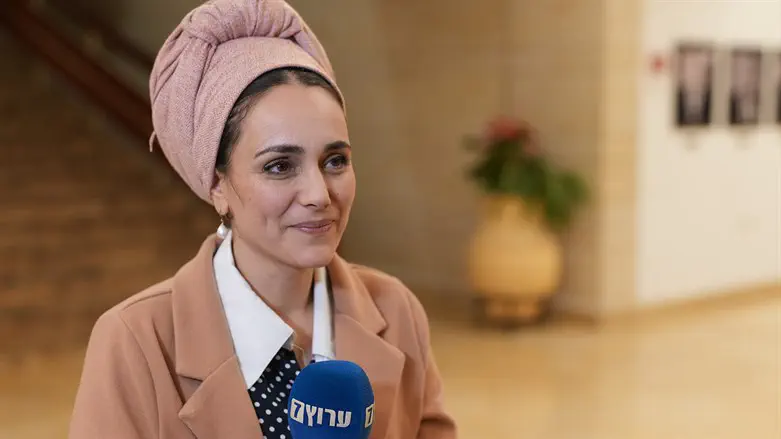
Last Friday I visited the ancient synagogue "Shalom Al Yisrael" in Jericho, the first city in which the Israelites camped after they crossed the Jordan River to enter the Promised Land. The visit was tempestuous as well as infuriating, but nevertheless inspiring and powerful.
Up until two decades ago, there was a yeshiva operating at the site, and then the government, in an egregious act of folly, decided to abandon the cities of Judea and Samaria and transfer the control over them to the Palestinian Authority. The 6th-7th century synagogue is located in Israel-controlled Area C according to the Oslo Accords, but despite that, Jews are prevented free access to the ancient house of prayer.
Upon arriving at the city, we were forced to wait for over an hour until the Palestinian Authority police arrived and allowed us to enter, and in addition, they remained with us throughout.
It is hard to describe our feelings of humiliation. In the land of our fathers, the land we returned to after 2000 years in order to establish a sovereign state, members of Israel's Knesset are forced to obey the rules of a foreign armed force.
And outside the synagogue, there is a military post of the Palestinian Authority Security forces. Here, in this area filled with Jewish history, they are the ones who rule.
We enter the synagogue, a minyan for morning prayers is quickly organized, while other Jews go down to the lower floor to admire the rare mosaic of Jewish symbols that has been preserved for centuries in the ancient and holy site, a mosaic that attests unequivocally to the Jewish life that once existed here.
Slowly but surely, the synagogue, left desolate most of the year, begins to take on a Jewish visage. People sit down to study Torah with their children, Rabbi Yossi Peli, who organizes monthly visits to the ancient place of worship with Orna Kobus from nearby Mitzpe Chogla, delivers a Torah lecture to the tour participants.
And mixed emotions flood me. They are hard to digest. One the one hand, longing for the not so far off days when we walked here without fear, and on the other hand, anger and sorrow for what is going on outside the windows of the synagogue.
The past few years have shown us the damaging significance of the retreat from the cities of our land in Judea and Samaria – we watched the cities of northern Samaria turn into breeding grounds for terror.
Our security and Israeli governance in the area depend on a permanent daily Jewish presence.
Our mission in the present government is to correct the mistakes of the Oslo Accords and return to the cities we abandoned, to Jericho and Shechem. We must reopen the yeshiva in the Shalom Al Yisrael synagogue in Jericho. That would be a comparatively easy first step.
The Jewish State – the state of the Jewish people, is a sovereign and powerful one, and there is no reason not to demonstrate our sovereignty and governance in every part of our land.
As the tour ends, Rabbi Tzvi Yehuda Kook's prophetic and yearning cry on Yom Ha'atzmaut, just three weeks before the Six Day War broke out, echoes in my head: "Where is our Hebron? Where is our Shechem? Where is our Jericho? Where is every bit of earth in Eretz Yisrael? Are we permitted to give up a millimeter of that earth? G-d forbid, Heaven forfend. "
Limor Son Har-Melech is a member of Knesset for Otzma Yehudit in the current government. Har-Melech and her first husband Shuli Har-Melech, a medic and ambulance driver, made their home in Homesh in Northern Samaria. In August 2003, while she was seven months pregnant with her second child and driving with Shuli, five gunmen fired upon their vehicle with automatic weapons and the vehicle rolled over. Shuli died instantly, Limor was in critical condition and her daughter was born prematurely by caesarean section several hours later. Al-Aqsa Martyrs' Brigades, the military wing of the Palestinian Arab political party Fatah, claimed responsibility for the attack.
In 2005, Har-Melech and her family, along with the rest of the residents of Homesh, were evicted from their homes due to the Disengagement Plan and her home demolished. Har-Melech remarried and has a family of ten children today. She co-founded the grassroots organization Homesh First, which seeks to re-build the town she had lived in until 2005.
Translated from the Arutz Sheva Hebrew site by Rochel Sylvetsky.